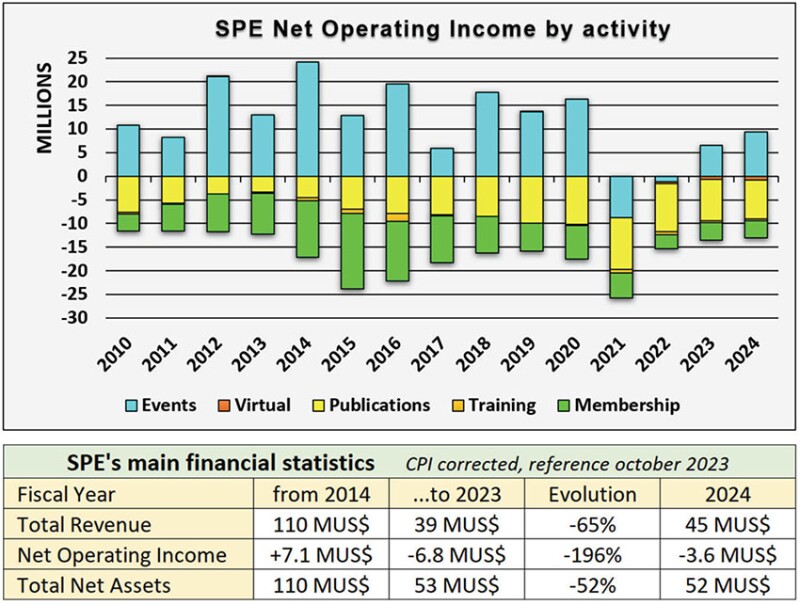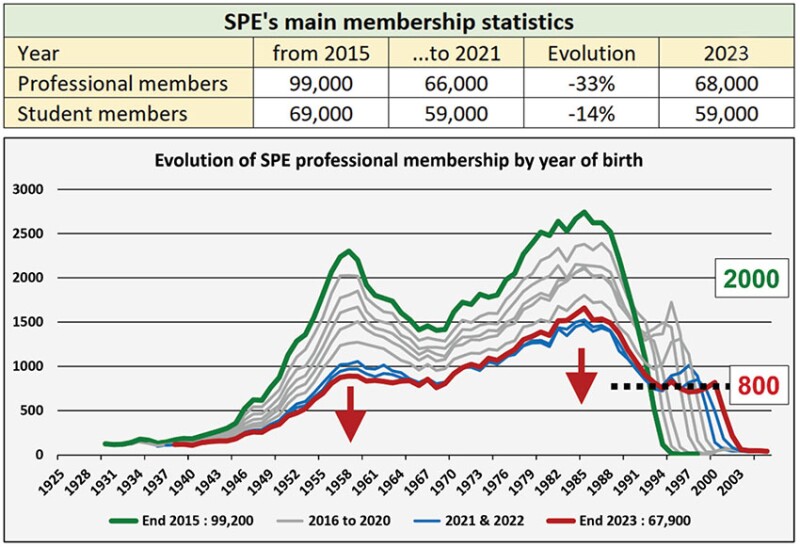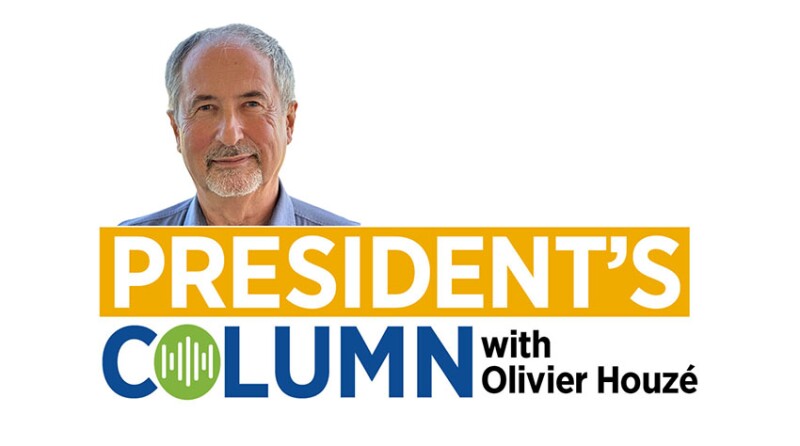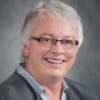This is a summary of the September episode of the President’s vodcast. Dive into the full video to catch the entire conversation.
Welcome to the Society of Petroleum Engineers’ President’s message with 2025 President Olivier Houzé. I’m Pam Boschee, director of SPE magazines, and Olivier joins me today to share his thoughts about being named president with the official passing of the baton from 2024 President Terry Palisch at our Annual Technical Conference and Exhibition (ATCE) in New Orleans this month.
He holds an engineering degree from École Polytechnique and an MSc in petroleum engineering from Stanford University. He started his career as a field well-test operator with Schlumberger (SLB). He is the co-founder and managing director of KAPPA Engineering, a reservoir and production engineering software company.
Olivier has been involved in many SPE summits, forums, and workshops. He coauthored an SPE and SPEE Monograph. He was an SPE Distinguished Lecturer in 2013 and served on the SPE Board as Technical Director for Reservoir from 2012 to 2015. In 2019, he received the SPE Lester C. Uren Award for Technical Excellence, and an SPE Honorary Member Award in 2022.
Olivier, let’s start by hearing a bit about your journey and what has led you to this pivotal role within SPE.
After my petroleum degree I started my professional career with Flopetrol, the well-testing arm of Schlumberger (now SLB) at that time. I started as a field engineer, mainly in the Middle East and the North Sea. Even many years later I still consider myself a well-test chief operator.
At age 28 I left Schlumberger, co-founded KAPPA and wrote the first version of a piece of well-test software that is still around today. My professional career has centered on the development of my company over the past 37 years.
I joined SPE as a student. During this time, Hank Ramey, who was our department head, would tell his Stanford students that joining SPE was not an option.
When I visit sections these days, I am impressed by the volunteerism and dedication of students and young professionals. I feel a bit guilty because it was not my case when I was their age.
I started with SPE as a consumer. I would publish papers, attend events, and use SPE exhibitions and JPT ads to commercially develop my company. My service to SPE was limited: some peer reviews, joining event committees, co-chairing events, that sort of thing.
Whenever I attended an SPE event, my goal was to come back home with at least one technical idea for the development of my company. It worked, invariably. It would not necessarily be from a paper publication or a plenary session. Sometimes the idea would come whilst having a drink with a colleague on the side of the event. To me SPE was, first and foremost, a fantastic facilitator.
In my case, ‘service proper’ started pretty late, in 2012, when in the same week I was selected as a Distinguished Lecturer, and I was informed that I would join the SPE Board as its technical director for reservoir. That was a very busy year for me, almost as busy as the one to come.
When I left the Board in 2015, I was kindly asked if I would consider the position of President, and my answer was a clear, categorical, ‘no thanks.’ I may even have added ‘never.’ I considered that other Board members had at the time a far better profile for this position and, to this day, I believe I was right.
It was only after the COVID-19 pandemic that I thought that a former Board member with business experience, some computer literacy, and a substantial to-do list could bring something to the table. Last year’s nominating committee agreed with this and here I am.
Let’s switch to your top priorities as you take on the role of SPE President. What will be your theme and the key goals you hope to achieve during your tenure?
SPE Presidents generally select one theme for their tenure, but I will not do this.
But first a bit of background as an introduction: To put it mildly, SPE has been challenged over the past 10 years. There was the 2015 downturn, and of course the 2020 pandemic. We face the challenges (and opportunities) related to the energy transition. We also had the SPE-AAPG merger project and the controversy and petition that followed. That was a lot to deal with.
During these times, successive boards and staff had to be reactive to whatever was thrown at them. Things are improving; we are returning to some kind of ‘new normal’ although it is unfortunately not the pre-pandemic ‘normal.’
We should use this period of relative stability to take a certain number of overdue and proactive actions. This has already started but we should see things accelerating in the year to come, and probably beyond.
Rather than a theme, I will present a roadmap of five very different but somewhat related topics: energy transition (again, sorry), finances, governance, membership, and quality.
Energy Transition
We talk and hear a lot about energy transition, but the reality can be very different depending on where you live. When visiting a European section, I am asked if we could ‘please remove the P from SPE because it is killing us!’ In other regions it is business as usual, and energy transition and net zero are a long-term commitment with little or no immediate impact … and then you have anything in between.
While our younger generation embraces the move, many in my generation do not like what they see, and some associate this move towards energy transition as a distraction, somewhere between greenwashing and outright treason.
People are entitled to their view, and part of the process is to have a candid discussion among our membership and clarify a few things, let alone to provide long-term perspectives to our younger generation.
We are all proud petroleum engineers, and oil and gas will remain our main activity for a while—this is agreed, and this is not the problem. But the train has already left the station, and I think we need to adapt, define metrics to know where we are exactly today, set a clear objective of what we want to become, agree to it, and move on. Such clarification is long overdue.

Finances
SPE finances are not necessarily the most interesting topic to most of our members, but this is important. As shown in the graph and table above, between 2014 and 2023 we lost 65% of our revenue, 200% of our profit, and 50% of our assets. This is enormous but consistent with the impact of the downturn and the pandemic.
The situation is improving, our activity is up, and we have already taken some decisions regarding our costs, and as a result, we are leaner and more responsive. But the numbers still do not add up; the work is not finished. Amongst other initiatives, we are working on new sources of revenue, new initiatives for global sponsorship, the development and licensing of a large language model (LLM) based on SPE content, and new activities in geothermal energy.
Long story short, we absolutely need to have our finances balanced by the end of 2025, and we will do that. This is not an option.
Governance
I was a member of the nominating committee 2 years ago when we had a petition following the attempt at an SPE-AAPG merger. I took an active part in the debate that followed.
I was happy to see our choices confirmed by our membership’s vote, but I saw that as a pyrrhic victory: the participation was low, the outcome (55/45) proved that the petition was not irrelevant, and I believed that the petitioners made some good points.
I agree that our governance is a bit dated. We could and should improve our transparency. We should consult our members more often, and at the beginning rather than at the very end of a process.
Regarding the petition, I remain skeptical on the technical director and regional director positions, but I think we could consider a direct election for the position of president.
No need for a revolution, but an evolution may be welcomed by many.

Membership
Between 2015 and 2021, we lost a third of our professional members. We are recovering, and membership is slowly increasing. But the evolution of demographics (graph above) is worrying.
My generation is retiring as expected.
But of greater concern is the fact we have lost 40% of our members who are now in their forties. Some are returning, but too slowly.
Of related concern, our conversion rate from student to young professionals is abysmal. We are recruiting and retaining fewer than half of the young professionals we need for the long term. We may be driving towards a wall and we need to address that, and this will probably require more than a year.
Quality
Bit of an old chestnut this one as it has been an endemic issue within SPE.
We can be proud of the best of our publications, which are generally strengthened by rigorous peer review.
But I believe we have a serious problem with the quality of, say, our lower quartile of papers.
Until recently we could live with this, look at the best and ignore the rest. But now we are in the process of creating LLMs using the entire SPE content to fine-tune a base model. We will need to look at the impact of heterogeneous quality on the resulting LLM.
We may end up being under pressure to reopen the subject for the umpteenth time, consider a drastic reduction of the number of published papers, and/or change the metrics to allow papers to reach OnePetro.
Wrap-Up
These five topics will be developed in the next JPT columns. In parallel, I will try to initiate related discussions on a dedicated SPE Connect channel.
Thank you, Olivier, for sharing your insights and goals. We look forward to your upcoming columns and vodcasts.


